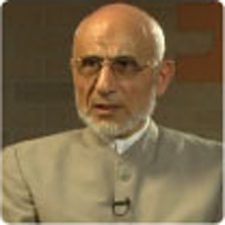December 23, 2016
President Rohani issued his long forgotten “Charter of Citizen Rights” Monday, but it provides no mechanism for citizens to appeal rights violations.
Rohani ordered all executive branch agencies to adhere to the rights detailed in the charter. But most complaints involve arbitrary actions by the Judiciary and security organs, which do not fall within the ambit of the Executive Branch that Rohani controls.
Addressing that major hole in his Charter, Rohani said he had “confidence in the cooperation of other state branches” in implementing the Charter.
The Charter lists 22 citizen rights, including the right to a fair trial, over which Rohani has no control or even influence, the right of access to information, over which the government does have considerable control, and freedom of thought and expression, over which it has some control. “No one can be persecuted merely for his or her beliefs,” the Charter states.
The Charter also decrees a right to housing, employment and a decent job, welfare and social security, and a healthy environment. While these are called rights, they are actually a matter of the available resources.
(The US Bill of Rights is a charter that restricts the power of the government over the people, barring the state from restricting speech, the press, assembly and the like. But in the 20th Century, many governments thought that an inadequate list and expanded “rights” to include resource issues, like jobs and housing, that most governments are unable to fulfill.)
There are also some oddball provisions, including the 22nd and last right to “National Power,” which includes in its explanation “the right to receive required defense training.” That appears to paint military conscription as a right rather than a duty.
The Charter does not decree any new rights. It is actually a compendium of rights in the law and the Constitution, rights that are more often honored in the breach than the observance by the Islamic Republic.
To implement these rights, Rohani said he would name a special assistant whose sole job would be to monitor rights enforcement. But that official would have no authority to intervene when he saw rights violated. Rohani also said he would issue an annual report on the progress made in providing rights.
Rohani pledged to issue a charter of rights during his 2013 presidential campaign. A few months after taking office, he issued a first draft and requested public comment. The draft essentially sank out of sight for three years until issued in final form Monday. It was little changed from the draft—but it was issued five months before the next presidential election with Rohani saying it showed he was keeping his 2013 campaign pledges.
Rohani said the Charter was one of his “dreams” when he took office and serves as a “voice from Iran is response to some Western countries” that have criticized Tehran.
However, the criticism hasn’t been over the rights provided in Iran’s Constitution and reiterated in the Charter, but over the lack of enforcement, which isn’t addressed in the Charter either.
Rohani said, “This Charter is a shout from the Iranian people against those arrogant Western countries who think they are ahead of Third World countries when it comes to human rights.”
The president’s website has translated the full charter into English, the text of which is available at http://www.president.ir/en/96865.























